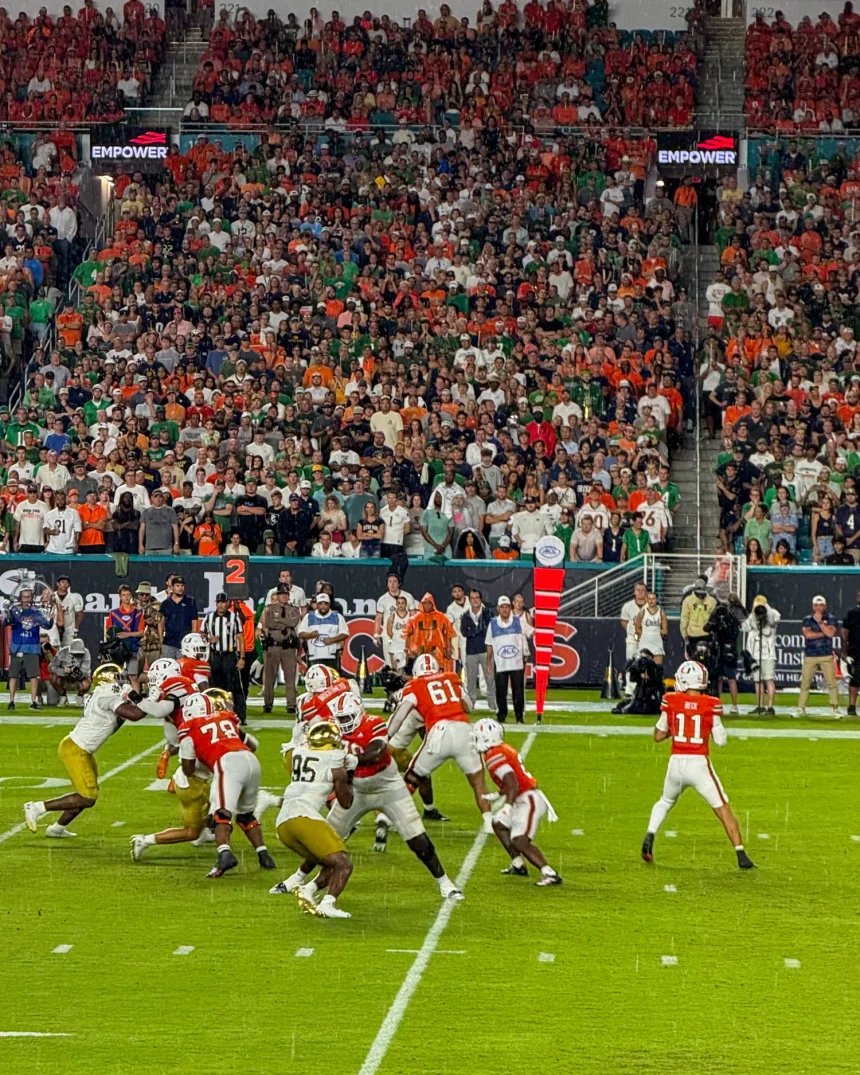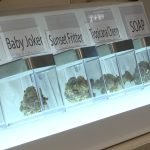When quarterback Carson Beck transferred to the University of Miami, most headlines centered on his potential to reshape the Hurricanes’ offense. But in Miami, a city where culture, business, and lifestyle converge, the impact of a star player extends far beyond the field.
Since his arrival in Coral Gables, Beck has done more than command the huddle—he has elevated the university’s national visibility. A statement win over Notre Dame helped propel the Hurricanes into the Top 5 rankings, positioning the program as a contender once again. That visibility carries meaningful financial implications for both the university and the greater Miami market.
The Economics of Winning
Winning football is winning business. The University of Miami’s athletic department reported $182.5 million in revenue in fiscal year 2023-24, with football serving as the cornerstone of that success. Over the past three years, the program has averaged $75.5 million annually, underscoring its role as the university’s financial engine. Analysts now value the Hurricanes’ football brand at more than $600 million, placing it among the upper tier of college athletics.
Beck’s leadership and high-profile victories are catalysts for further growth across multiple revenue streams—ticket sales, alumni giving, corporate sponsorships, and merchandise. The Notre Dame game, in particular, sparked renewed enthusiasm, boosting not only gameday receipts but also donations and long-term support.
Ripple Effects Across Miami
For the city, nationally relevant UM football weekends resemble cultural tentpoles like Art Basel or the Formula 1 Miami Grand Prix. Hotels see thousands of additional room nights booked, restaurants experience surges in reservations, and nightlife venues thrive as alumni and visitors descend on the city. These spikes translate into millions of dollars in incremental local spending.
The upcoming primetime showdown against Florida is expected to have a similar effect. With University of Miami ranked No. 5, the game will attract national media coverage, traveling fans, and a significant television audience—further reinforcing Miami as a global destination for both sports and lifestyle.
Real Estate and Brand Miami
Sports success also bolsters Miami’s broader brand. A Top 5 University of Miami Hurricanes team competing under the lights strengthens the city’s positioning as a dynamic, upward-moving market. For developers, brokers, and investors, this visibility helps fuel narratives of vibrancy and growth—critical in attracting corporate relocations, institutional capital, and high-net-worth buyers.
In Coral Gables, University of Miami’s resurgence adds depth to housing demand, retail vibrancy, and mixed-use momentum. Across Miami’s urban core, student activity, alumni engagement, and visitor spending create additional layers of demand that touch hospitality, residential, and commercial sectors alike.
A Moment of Momentum
Beck’s upcoming matchup against Florida is more than a football game—it is a moment of leverage. A win would solidify Miami’s return to the national elite and generate another wave of attention with measurable financial returns.
For developers, brokers, and investors—the lesson is clear: when the Hurricanes thrive on the field, Miami thrives off it. Carson Beck’s transfer has already proven to be more than an athletic storyline; it is an economic spark that reinforces the city’s standing on the national stage.











